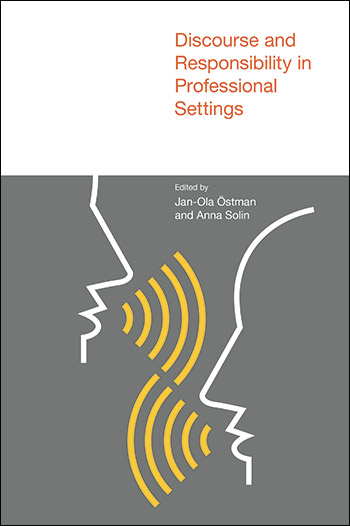Chapter 9: Roles, dramaturgy and responsibility in Swedish TV-debates
Discourse and Responsibility in Professional Settings - Jan-Ola Östman
Christian Svensson Limsjö [+]
Linköping University
Description
The chapter focuses on Swedish TV-debate programs which deal with current topics of societal relevance and where both official representatives and representatives of the public participate. The research interest lies in what different voices can be heard in mediated debate programs and in which ways and in what sense this is done. Using Goffman’s dramaturgical social theory and Sacks’s notion of membership categorisation, the chapter examines the possible roles and identities of the guests within the dramaturgy of the show and relates this to the distribution of responsibility and the guests’ societal roles. The analysis shows that the activity roles and the communicative limitations and expectations attached to them affect who is discursively construed as socially responsible. The recurrent distribution of activity roles (to representatives of different societal categories) also indicates a cultural understanding of how to handle, and conceive of, issues of societal responsibility. In short, we encounter a debate where different individuals and their personal experiences are construed as affected by the power elites and their decisions. The general perspective is that individuals are subjected to different problems by society and its institutions, without being able to influence them on their own. The ordinary citizen is therefore portrayed as a passive victim of a system he or she cannot influence. Citizens can only be helped by authorities changing decisions (on the initiative of media producers).






